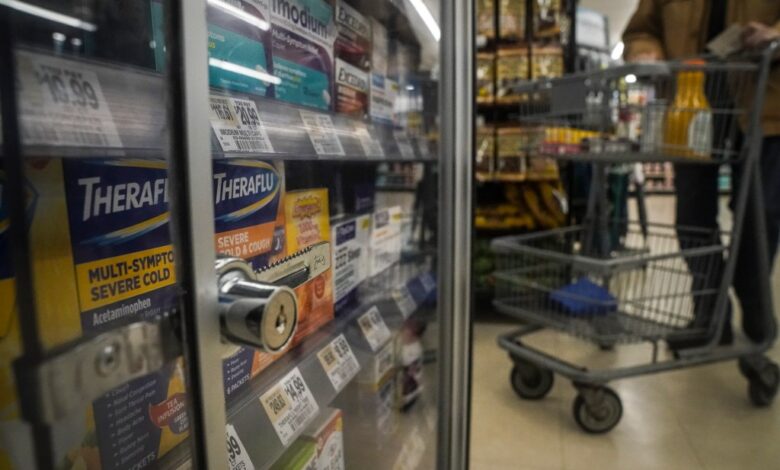Small businesses taking extreme measures to stop shoplifters: Security expert

Some small business owners in blue cities across the US have resorted to unusual and extreme measures to combat rampant shoplifting in their stores.
A small business owner in San Francisco says he requires customers to shop with an employee escort to thwart potential thieves.
“It’s pretty bad,” Sam Black, manager of Fredericksen Hardware & Paint in San Francisco, told KRON4. “I mean, the dollar amounts are pretty significant, and with the tools and now we’re getting snatch-and-grabs when they take whole displays, so it’s getting kind of dangerous for the employees and the customers.”
“We just want to make it uncomfortable for the thieves so they go somewhere else,” Black said.
It’s the same story in New York City for hardware store owner Robert Morales, who has reportedly adopted similar protocols.
He only allows one or two people in his store at a time and makes his other customers wait by the door until an employee can assist them to keep a better eye on potential shoplifters.
He lamented to NYC-based The City about the lack of consequences for shoplifters when he reports robberies.
“We need that when we call law enforcement they come on time and arrest these people,” he said.
Private investigator and security expert Patrick McCall says that businesses are seeing record numbers of robberies because thieves know their crimes won’t be prosecuted.
“The fact is lack of laws and the new bail reform laws — these crimes aren’t being prosecuted and the reward outweighs the consequences for offenders,” he told Fox News Digital.
Despite these businesses’ efforts, thefts continue to happen, he said.
“Several high-end luxury retailers are now putting in place chaperones or screeners, as we call it, who are basically screening shoppers when they come in, either granting them access to a store, or restricting their access, and following them around the store,” he explained.
However, this method only deters “opportunist” shoplifters, not organized retail crime rings or smash-and-grab robberies.
“As a security expert, we are advising retailers to implement certain security procedures, including limiting the number of stock items on a sales floor that is readily available for these individuals to take,” he explained.
A New York-based attorney and psychologist who has worked with Stoplift, a remediation program for shoplifters, said that these suspects understand that consequences are minimal for their crimes.
“As an attorney and psychologist who has worked with the Stoplift program, and observed the increase in shoplifting crime, it is obvious that prosecution must be followed through,” Dr. Jean Cirillo told Fox News Digital.

“Shoplifters now realize that the consequences will be minimal if they are caught. They will probably be released immediately, and not prosecuted, especially in larger cities, such as New York, where the crime has taken a serious upward turn,” she continued.
Shoplifters are “encouraged” to shoplift because of the low risk and high reward.
“On the one side is the excitement, satisfaction with beating the system, and the immediate acquisition of expensive merchandise. Weighing that against the possibility of getting caught and anticipation of mild or no punishment, it’s obvious to see why a greater number of people are choosing to steal from stores,” she argued.
Retailers have lost billions to “shrink,” reporting $112.1 billion in losses in 2022, according to the National Retail Federation’s 2023 security survey.
The term “shrink” typically means theft and other forms of inventory losses.
The NRF reported that the top five cities most plagued by organized retail crime that year were Los Angeles, San Francisco/Oakland, Houston, New York City and Seattle.
Fox News’ David Rutz and Jeffrey Clark and FOX Business’ Aislinn Murphy contributed to this report.




